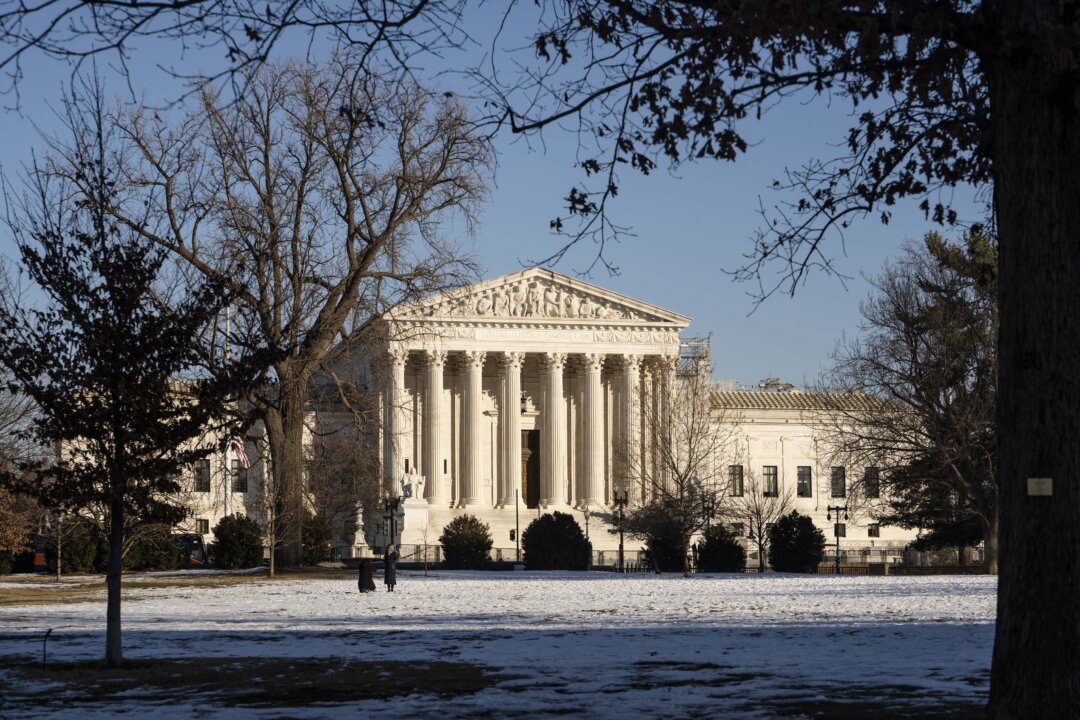The nation’s highest court has been considering the social media platform’s emergency request to halt a law compelling it to sever its Chinese ties.
The U.S. Supreme Court may issue decisions on Jan. 17 in pending cases, which could include TikTok’s request to block a law forcing it to change owners or shut down on Jan. 19.
Late on Jan. 16, the court updated its website to say it “may announce opinions” on Jan. 17, without providing specifics. Decisions may be made public but the justices will not appear in court to release them, according to the website.
Supreme Court justices heard oral arguments on Jan. 10 in the fast-tracked case involving the popular social media platform. The court had agreed on Dec. 18, 2024, to hear the case.
The justices seemed skeptical on Jan. 10 of TikTok’s request to halt a federal law requiring indirect owner ByteDance to divest itself from the company by Jan. 19 or cease U.S. operations. The hearing covered two consolidated cases, TikTok Inc. v. Garland and its companion case, Firebaugh v. Garland.
President-elect Donald Trump, who will be inaugurated at midday on Jan. 20 and is himself a social media entrepreneur, also submitted a brief urging the justices to pause the law to allow him to fashion a political solution when he returns to the White House.
According to the emergency application filed by TikTok, about 170 million monthly U.S. users uploaded more than 5.5 billion videos in 2023 that received upward of 13 trillion views, half of which occurred outside the United States. In the same year, U.S. users viewed content originating from abroad more than 2.7 trillion times.
President Joe Biden, who leaves office on Jan. 20, signed the Protecting Americans from Foreign Adversary Controlled Applications Act on April 24, 2024, after it was passed by bipartisan majorities in the House and Senate.
TikTok is operated in the United States by TikTok Inc., a U.S. company that Cayman Islands-based ByteDance Ltd. owns indirectly.
TikTok acknowledges that ByteDance owns subsidiaries in China and other nations and denies that the Chinese Communist Party has control over its operations.
Echoing criticism of TikTok expressed by lawmakers on both sides of the aisle, the law itself cites concerns that the Chinese regime may abuse the personal data of American TikTok users, seeking strategic advantage over the United States and disseminating propaganda.
During oral arguments last week, U.S. Solicitor General Elizabeth Prelogar said TikTok poses a threat to U.S. national security because China “has a voracious appetite to get its hands on as much information about Americans as possible, and that creates a potent weapon.” She said China “could command that ByteDance comply with any request it gives to obtain that data that’s in the hands of the U.S. subsidiary.”
Justice Ketanji Brown Jackson seemed to support upholding the law.
“TikTok can continue to operate as long as it is not associated with ByteDance,” she said.
Chief Justice John Roberts said, “Are we supposed to ignore the fact that the ultimate parent is, in fact, subject to doing intelligence work for the Chinese government?”
Justice Brett Kavanaugh said the government’s arguments about data collection were “very strong,” and said that concerns about the Chinese regime controlling content “raise much more challenging questions.”
Justice Elena Kagan said TikTok Inc. has First Amendment rights because it is a U.S. company, and questioned whether the law affects those rights.
TikTok attorney Noel Francisco said that the law “singles out a single speaker for uniquely harsh treatment” and that this violates the First Amendment.

